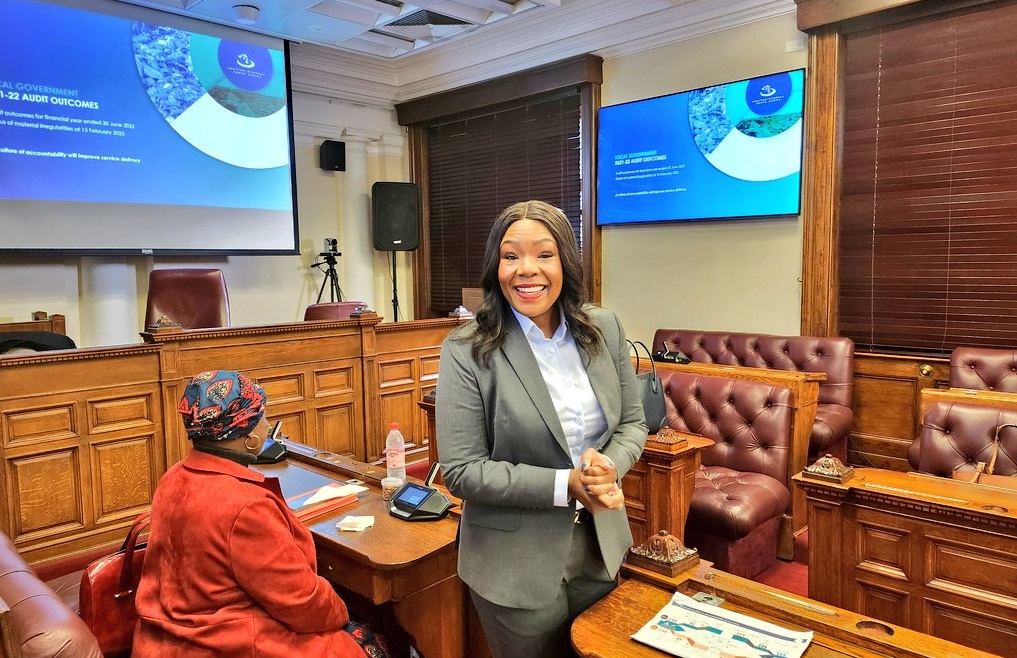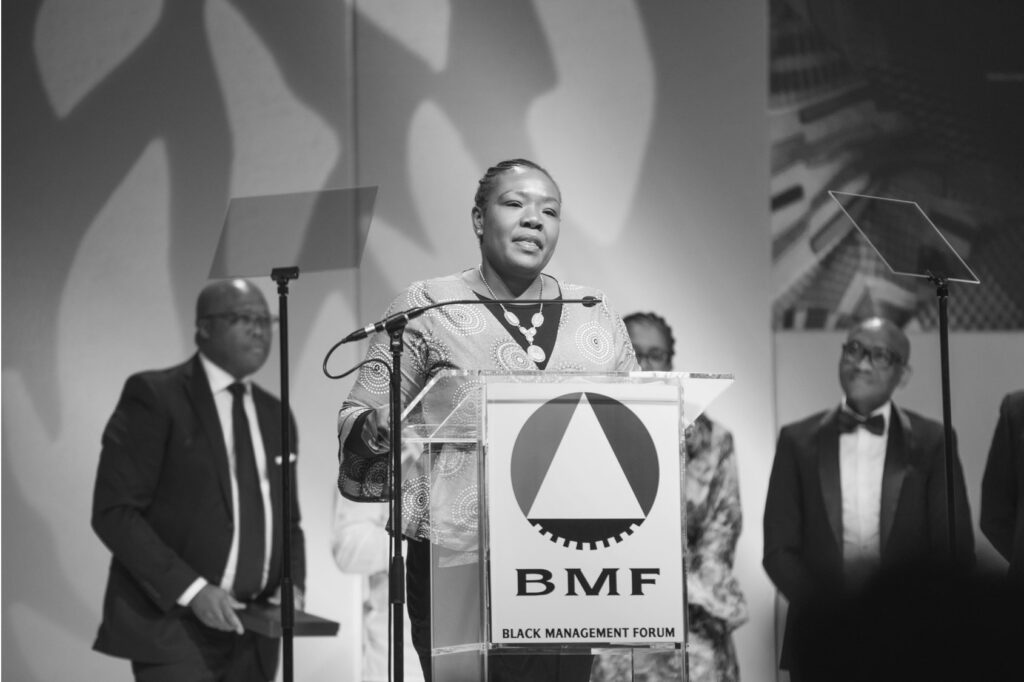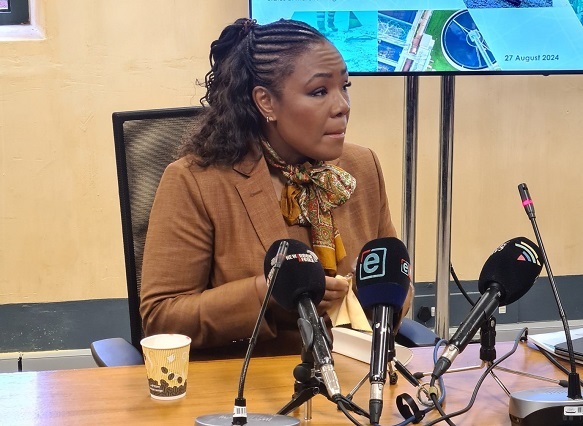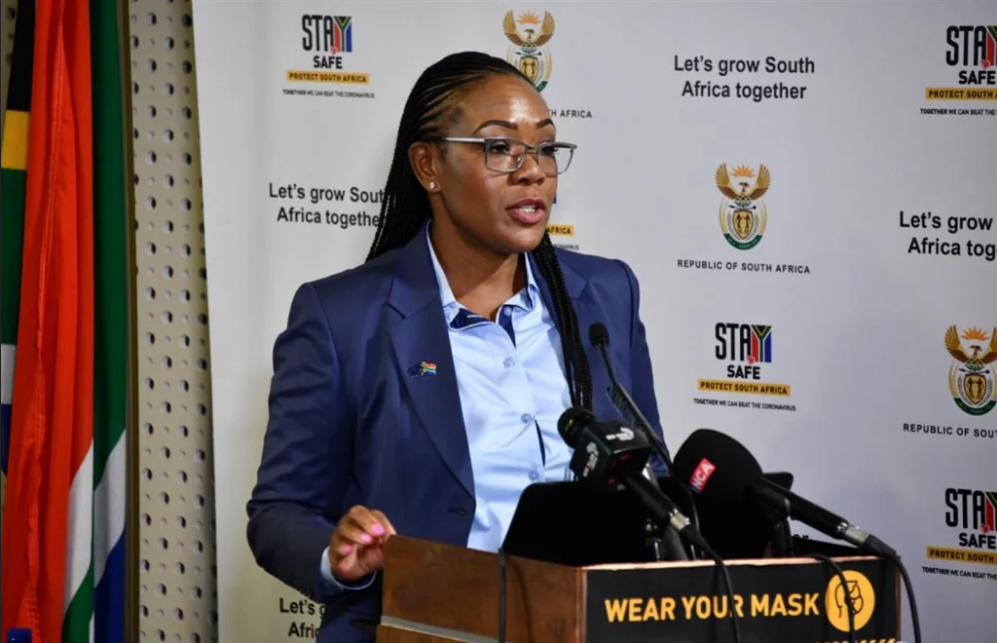By Xolisa Phillip
After two years as head of audit followed by another seven years as deputy auditor-general, Tsakani Maluleke was thoroughly prepared for the top job.
In a wide-ranging written interview, Maluleke, whose appointment as Auditor-General was confirmed by President Cyril Ramaphosa in late 2020, reflected on leading South Africa’s supreme audit institution in a dynamic and ever-changing environment.
Maluleke is not only the first woman to assume the role of Deputy Auditor-General in the institution’s history, she also became the first woman to lead it upon confirmation of her candidacy. Her seven-year, non-renewable term began on 1 December 2020.
Armed with a combined nine years in the Office of the Auditor-General South Africa (AGSA), in 2020 the chartered accountant (CA) threw her hat in the ring to succeed the late Kimi Makwetu, trusting that the experience she had acquired as Head of Audit and Deputy Auditor-General would count in her favour.
“As I had already been working in the AGSA for nine years – two years as Head of Audit followed by seven years as Deputy AG – I was confident of my understanding of the work of the AG and the functioning of the Office of the AG,” Maluleke said.
“I had also invested time and energy in preparing for the interview itself. While I did not anticipate that the interview would be as long as it was, I was able to ‘hold my nerve’ as I was prepared,” she explained.
Parliament’s seal of approval
A multi-party parliamentary ad-hoc committee conducted the public interview process to select Makwetu’s successor in 2020. Maluleke went up against five others who made it to the public interview stage, but ultimately emerged as the preferred candidate – the committee unanimously recommending her appointment.
“The process is well-structured and transparent. All this was done in full view of the public. In fact, the level of transparency was the best I had seen for similar processes,” Maluleke said.

Drive to succeed
Maluleke described her approach to leadership as one informed by humility and responsibility, and a sense of wanting to make good on the opportunity to head the Office of the AGSA.
“As the first woman to take on the role I am focused on doing well at it, so that I normalise the idea women can do just as well – if not better – than the men that came before,” she said.
She added: “I must succeed as a tribute to all men and women that worked towards creating a moment when I could be appointed as the first woman AG or DAG [Deputy AG], and also young women that aspire to lead in any institution one day.”
Maluleke does not subscribe to the limiting idea that women cannot do the jobs men do and dismisses this thinking as mythical. Women in South Africa and beyond have dispelled the myth by earning and attaining key leadership positions and doing well at the helm.
“In South Africa, we have our first female Chief Justice [Mandisa Maya] ever. I think a female president is not too far off for us. Like many, I am inspired by the race of Kamala Harris towards the role of president of the United States,” Maluleke said excitedly.
With 20 years’ experience in both the private and public sectors, Maluleke draws professional inspiration from those who use their talent to serve the country, including members of her own team.
Maluleke stated: “The members of Team AGSA are predominantly young people – of the 3,600 employees, 68% are under 35 – who are talented, professional, hard-working and patriotic. Their quest for excellence as they serve our democracy inspires and grounds me.”

Office of AGSA skills base
Maluleke noted that the Office of the AGSA had grown in scale and in the depth and diversity of skills.
Out of 3,600 employees, 1,300 were audit professionals, including more than 1,000 qualified chartered accountants. The Office’s graduate programme enables young people to train as CA(SAs) and is one of the largest accredited by the SA Institute of Chartered Accountants, delivering a high number of new CAs into the market each year.
“Over the past couple of years, the number of newly-qualified CAs has been similar to that delivered by the Big Four auditing firms in South Africa,” Maluleke said.
Since being established 20 years ago, the graduate programme has produced more than 2,000, mostly black and women, CAs.
Some remain at the Office of the AGSA while many go on to build careers in the public sector as internal auditors, risk managers, chief financial officers, CEOs and heads of departments. Others go into the private sector.
“A growing number is finding exciting opportunities to work abroad, as many AGs across the world, are hiring from the AGSA. This is an endorsement on the quality of the training that we provide and on our success in helping young people fulfil their dreams,” she said.
The Office of the AGSA has also “diversified our expertise by having information systems experts, forensics specialists, data analysts, medical doctors, quantity surveyors and engineers that work alongside the auditors,” said Maluleke.
“This depth and diversity of expertise ensures that we deliver quality audits and reports across the different public institutions, departments, municipalities and public institutions, including the large and complex SOEs [state-owned entities],” Maluleke added.
Changing environment
In leading the Office of the AGSA, Maluleke is alive to the shifting dynamics in South Africa’s political environment across the three spheres of government.
The AG considers it important that she and her leadership team “remain alert to changes in our context and respond by adjusting how we do things”.
“Fortunately, at the AGSA, our constitutional mandate remains constant. The opportunity for us is to keep striving to be relevant and effective in our work,” Maluleke said.

An accountable AGSA
The AG expressed a commitment to lead by example. This involves “doing the things that we expect of other institutions, especially those we audit,” she said.
Maluleke affirmed that the Office remained dedicated to performing its mandate effectively, transparently and with accountability.
“We have established governance processes and structures, including an independent audit committee and an independent external auditor that is appointed by Parliament through the Standing Committee on the AG (SCOAG),” Maluleke explained.
“We are audited every year, and table our annual report in Parliament. SCOAG scrutinises our strategic plans and budgets, as well as the annual report, and holds us accountable. We also operate on the basis of international auditing standards, a code of ethics and a process to ensure the quality of our audit work,” she said.
On her legacy, Maluleke said this would become clearer when her term had concluded. For now, her focus was on building upon the strong foundation her predecessors had left to strengthen the Office of the AGSA and ensure it became more effective in delivering on its mandate.
“Together with my team, we remain committed to using our independent audits and reports to contribute to making public institutions more effective, efficient and transparent in delivering services to the people of SA,” Maluleke said.
INSIDE POLITICS

